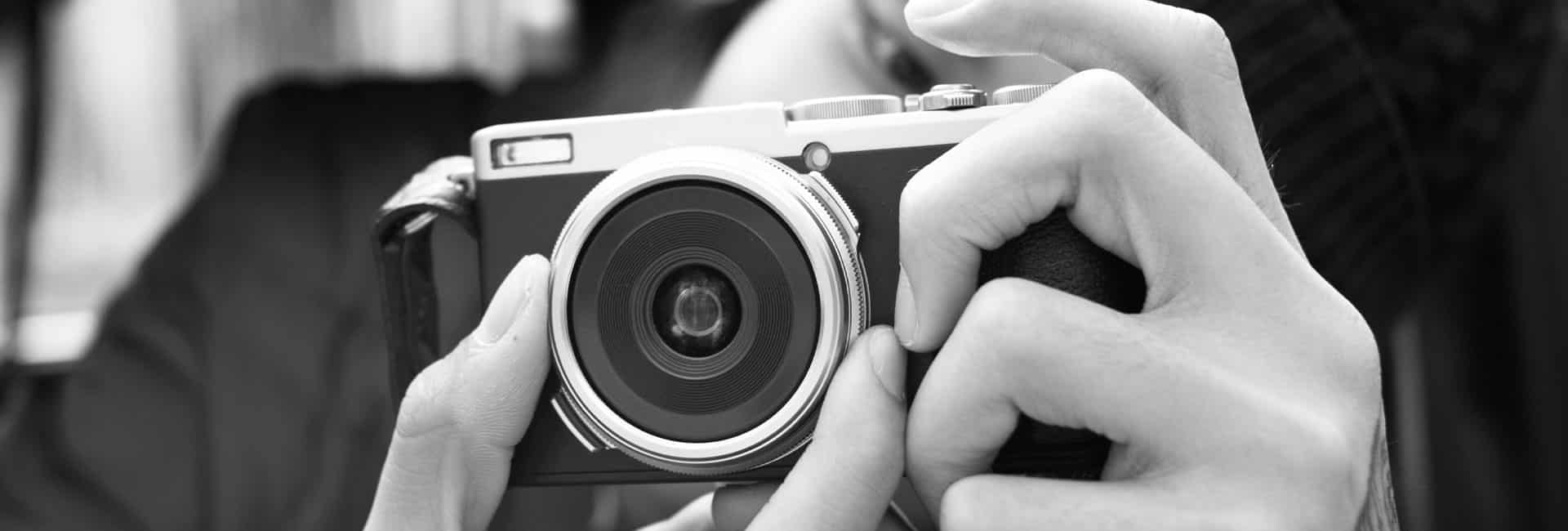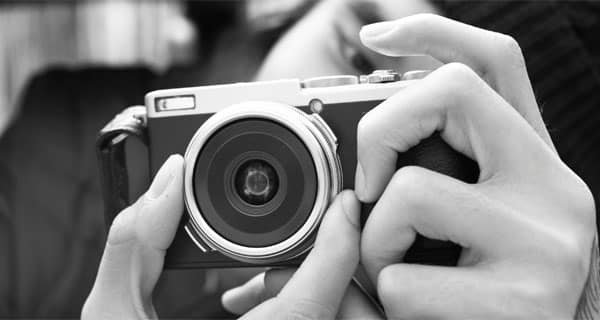
Used under a Creative Commons Licence
Can I Be Sued for Taking Someone’s Photo?
Amy was out walking her dog through Sydney’s Kings Cross when a stranger approached her. He was persistent, bordering on aggressive, and despite Amy’s visible discomfort, he pushed her for her number. To end the conversation, she gave in. Days later, she learned that the entire exchange had been secretly filmed using a camera hidden in the man’s sunglasses and uploaded to his Instagram account—where over 1.3 million people saw it.
This disturbing incident, reported by the ABC in March 2025 (https://cityhub.com.au/american-influencer-secretly-filmed-women-in-kings-cross/), raises an increasingly relevant question: can someone legally take your photo—or even film you—without your knowledge in Australia? And if you’re a photographer or content creator, what should you know before pointing your lens at a stranger?
At Sharon Givoni Consulting, we regularly advise photographers, creatives, influencers, and business owners about how to stay on the right side of the law. And the truth is, Australia’s laws are playing catch-up with technology.
No Automatic Right to Privacy in Public
Despite the unease incidents like Amy’s create, there is no general legal right to privacy in public spaces in Australia. That may sound surprising, but it stems from a foundational case: Victoria Park Racing and Recreation Grounds Co Ltd v Taylor (1937) 58 CLR 479. In this case, the High Court ruled that someone observing (and even broadcasting) what is visible from a public space is not infringing on privacy. That precedent still stands.
So yes, you can usually take photos of people in public without asking—but that’s just the starting point.
What About Covert Filming?
The next question is: what if someone records you without your knowledge, especially with audio or a hidden device?
Each Australian state and territory has Surveillance Devices legislation that may make it illegal to use listening, optical or tracking devices to record private conversations or activities without consent.
For example:
In New South Wales, the Surveillance Devices Act 2007 (NSW) makes it an offence to intentionally record a private conversation or activity without the consent of all parties involved.
The key legal test is whether the person had a reasonable expectation of privacy.
Similar laws exist across other jurisdictions, like Surveillance Devices Act 1999 (Vic) and Surveillance Devices Act 1998 (WA).
At Sharon Givoni Consulting, we often help clients understand whether a recording or photograph could breach these laws—especially with the increasing use of drones, hidden body cams, and wearable devices like smart glasses.
What’s Coming? A New Tort of Serious Invasion of Privacy
Australia is also on the cusp of major change. A long-anticipated reform is set to introduce a statutory tort for serious invasion of privacy.
Expected to form part of upcoming federal privacy reforms, this law would allow individuals to sue for damages where:
- There was a serious invasion of privacy, and
- The person had a reasonable expectation of privacy, and
- The conduct was highly offensive to a reasonable person, and
- The court finds that the public interest does not justify the invasion.
The new tort would apply to acts like:
- Covert filming in a place where someone expects privacy (even in public, depending on context)
- Publishing intimate images or information without consent
- Sharing photos in a way that causes harm, distress, or reputational damage
Although not yet law, this proposed change represents a significant evolution in how privacy will be protected in Australia. It means photographers and content creators will need to exercise more caution and empathy—especially when photographing or filming others in ways they may find invasive or exploitative.
Other Legal Risks
Even if you’re not breaching surveillance laws, other legal issues can arise when photographing people in public.
In Ettingshausen v ACP Publishing Pty Ltd (1991), a sports magazine published a photo of a footballer in the shower without his knowledge, implying he had consented. The court found this defamatory, ruling that it subjected him to ridicule and caused reputational damage. If your artwork captures sensitive or confidential material—such as whiteboards with internal notes, client names, or patient information—you could be in breach of confidentiality laws.
In Giller v Procopets (2008), the court recognised that misuse of private material can support a breach of confidence claim, particularly when it causes distress or harm. Here, former de facto partners, with the defendant (Procopets) surreptitiously recorded intimate videos of their sexual encounters and later distributing them to the plaintiff’s (Giller’s) friends, family, and employer. The court awarded $40,000 for the for the plaintiff’s emotional harm and distress.
Private venues like gyms, expos, galleries, or schools often prohibit unauthorised photography as a condition of entry.
While not criminal, taking photos in breach of those terms can result in eviction, bans, or even a civil claim for breach of contract, as the entry ticket or sign may form part of a legally binding agreement.
Although there is no specific law prohibiting photographing minors in public spaces across Australia, local councils, schools, and sporting bodies often have policies restricting it. Failing to comply can lead to removal from premises, complaints to police or the Office of the Children’s Guardian, and significant reputational fallout—especially if the images are posted online without parental consent.
If you use an image of a person in advertising or to suggest endorsement—especially a celebrity—without their permission, you could face a legal claim.
In Hoffman v Drug Abuse Resistance Education (DARE) America (1999), actor Dustin Hoffman sued after a manipulated image of him was used to sell clothes. The Los Angeles Magazine used a computer-altered image of him to illustrate a fashion spread without his consent and the image depicted Hoffman in a silk evening gown and high heels, digitally modified from his appearance in the film Tootsie.
The magazine included the altered photo in its March 1997 article titled “Grand Illusions,” which humorously showcased famous actors, including deceased ones, dressed in spring fashions. The caption accompanying Hoffman’s photo read, “Dustin Hoffman isn’t a drag in a butter-coloured silk gown by Richard Tyler and Ralph Lauren heels”.
In Australia, the Australian Consumer Law can apply if the image creates a false impression of endorsement or sponsorship.
Practical Tips from Sharon Givoni Consulting
We work with photographers, artists, influencers, and brands every day. Our approach is to combine legal know-how with real-world creative insight.
Here are some practical tips:
- Know where you’re shooting – Is it a public space or private venue? Check signage and ask if in doubt.
- Get consent when practical – Especially for kids, performers, people in distress, or private activities.
- Respect takedown requests – Even if you’re legally entitled to use an image, taking it down shows respect and can prevent drama.
- Be careful with captions and context – It’s often not the photo that causes legal trouble—it’s the implication.
- Think before posting – Would you be OK with the same photo of yourself on someone else’s feed?
Photographer Dorothea Lange once said, “The camera is an instrument that teaches people how to see without a camera.” In today’s image-saturated world, that lesson is more important than ever. Are we seeing the person in the frame—or just their visual value?
As photographers, we need to think ethically, not just legally. It’s not about stifling creativity—it’s about aligning it with common sense, courtesy, and consent.
Just because you can take a photo doesn’t always mean you should. Or, as the eSafety Commissioner Julie Inman Grant put it: “Just because you can, doesn’t mean you should.”
How We Can Help – Sharon Givoni Consulting
Whether you’re a full-time photographer, casual creator, brand manager, or artist—we can help you understand:
- What you can photograph legally
- What you can publish without consent
- What to do if your own image has been misused
- How to draft image rights agreements and model releases
- What to say in a letter of demand (or cease-and-desist) or takedown request
We combine over two decades of experience in intellectual property, media, privacy and creative business law—delivered in Plain English, not legalese.
Need Legal Advice About Photography and Privacy in Australia?
We’re here to help. Whether you’re facing an image takedown, planning a public shoot, or unsure about using someone’s likeness—Sharon Givoni Consulting provides trusted, practical legal advice for creatives.
At Sharon Givoni Consulting, we also draft tailor-made Terms and Conditions for:
- Wedding photographers
- Event and commercial photographers
- Drone photographers
- Portrait photographers
- Fine art and street photographers and more.
Our contracts are written in Plain English, so your clients understand what they’re agreeing to. They cover essential things like:
- What happens if a client cancels last minute
- Whether you can use the images for your own promotion
- Liability and insurance
- Drone flight permissions and airspace restrictions
- Model releases and consent to publish
- What happens in case of technical failure or weather issues
- We also review existing contracts and help you comply with privacy, copyright, and consumer law, so you’re protected from every angle.
Get in touch now to book a consult or ask a quick question.
Further Reading (Non-law firm sources):
Office of the Australian Information Commissioner (OAIC):
https://www.oaic.gov.au
eSafety Commissioner – Image-Based Abuse:
https://www.esafety.gov.au/key-issues/image-based-abuse
Australian Human Rights Commission – Rights and Freedoms:
https://humanrights.gov.au/our-work/rights-and-freedoms
Arts Law Centre of Australia:
https://www.artslaw.com.au
Is it always legal to snap:
https://sharongivoni.com.au/photography-without-permission-legal-snap/
Can artists paint your photos and what do copyright laws say?:
https://sharongivoni.com.au/copyright-law-can-artists-copy-photos/
Please note the above article is general in nature and does not constitute legal advice.
Please email us info@iplegal.com.au if you need legal advice about your brand or another legal matter in this area generally.


